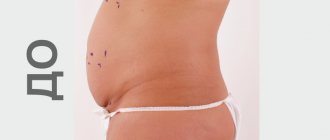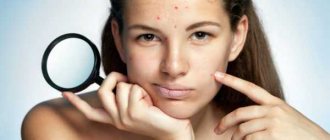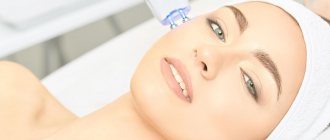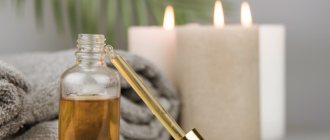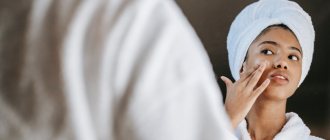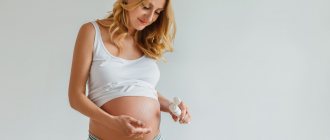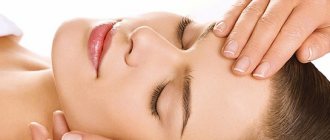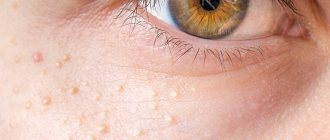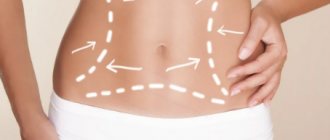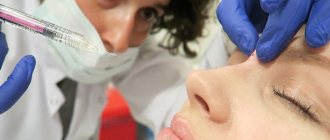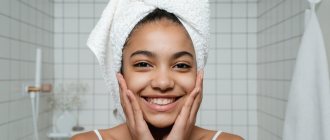Rashes make the skin sensitive to any external factors. Ultraviolet radiation is no exception. Solarium cannot harm the skin if used wisely, and It really helps with acne on the face.
Ultraviolet rays have bactericidal and anti-inflammatory properties. Under their influence, an environment is formed on the surface of the skin in which pathogenic microorganisms cannot multiply. Therefore, inflammatory processes are reduced.
In addition, under the influence of ultraviolet radiation, vitamin D is produced, the immune system is strengthened, which promotes the healing and resorption of existing acne.
Solarium helps against acne by relieving stress and helping to improve hormonal balance. Therefore, acne is reduced if the cause of its appearance was metabolic disorders and nervous conditions.
Result before and after visiting the solarium
The solarium dries out the upper layer of the dermis. This normalizes the functioning of the sebaceous glands, less sebum is produced, and the pores are not so clogged and inflamed . However, to get a good result, you should still follow some rules:
- It is better to go to the solarium with clean skin, so a few weeks before the course you should undergo cleansing procedures from a cosmetologist. The pores will breathe better and the flow of oxygen will improve. Tanning will not cause additional stress to the skin.
- Before tanning, you should not use creams, decorative cosmetics, only special care and protective products. For problem skin, it is better to give preference to products without bronzers, tingles, enhancers, but simply with a moisturizing effect. Too damaged dermis will only be more stressed and the number of acne will increase.
- After the session, it is necessary to use moisturizing and soothing products. The skin will not try harder to protect itself, produce more sebum, become rougher and clog pores.
Scrubbing the face before the solarium
But the solarium is not a panacea for acne on the back and face . Most often, acne is a consequence of problems within the body. Rashes occur due to hormonal imbalances, disturbances in the functioning of the intestines, thyroid gland, reproductive organs, and infections. Therefore, a solarium will be fully effective only in the case of complex therapy, including hardware procedures, care products and the necessary treatment.
The consequences of acne are spots and scars. Acne marks spoil your appearance, make your complexion unattractive, and reduce self-esteem. Ultraviolet rays promote faster healing and recovery from acne .
In a solarium, the pigment melanin is produced, the skin acquires a darker shade. Against this background, acne marks become less noticeable. UV rays begin to stimulate metabolic processes and cell regeneration. Therefore, the spots begin to heal faster. They fade and are compared with the rest of the skin color. Solarium is very useful for acne spots.
However, if the rashes have other causes, and not just pore contamination and increased sebum production, then its action will not bring results..
You should not visit a solarium in the following cases:
- During pregnancy, breastfeeding and menstruation. Acne during this period is a temporary phenomenon.
- For skin infections and diseases such as dermatitis. Ultraviolet radiation has a negative effect in this case.
- If you have an allergy, solarium can provoke an increased reaction. It only activates all processes. In addition, a person may just be allergic to ultraviolet radiation.
- During adolescence, the skin is still tender and sensitive; acne occurs as a result of hormonal changes. Ultraviolet radiation can severely injure the dermis and cause intensification of processes.
- Solarium should not be combined with taking oral contraceptives, antibiotics, or antidepressants.
- You should not sunbathe if you have vitiligo or hyperpigmentation. The skin is too dry, sensitive, ultraviolet radiation damages it and reduces immunity. The production of a new layer increases, keratinized cells appear, which clog the pores and become inflamed.
- For oncology, exacerbation of chronic diseases.
- If there are many moles on the body.
It is not recommended to visit a solarium during pregnancy.
When treating acne with sessions in a solarium, it is important to maintain a balance. Visiting too often and for too long will lead to a backlash. The skin will become dry, sebum will be produced too much, dead skin cells will clog the pores and become inflamed. The dermis becomes rougher, and when damaged it cannot resist pathogenic bacteria well enough.
To benefit the skin, it is better to start procedures with a minimum time. At the first sessions, 2-3 minutes under the lamps will be enough. Then you can gradually increase the time. You should not be under the artificial sun for more than 10 minutes at a time.
For recovery, 5-6 procedures will be enough. The skin will dry out a little and acquire a light, radiant tint. Experts recommend a formula of 50 to 48, where the first number is the total number of hours per year, and the second means the number of hours for a break. You need to rest for at least two days between procedures. It is optimal to visit the solarium twice a week.
Read more in our article about tanning beds for acne.
What is a solarium
A solarium is a special equipment that operates on the basis of artificial ultraviolet lamps.
Under the influence of artificial radiation, the production of melanin is activated, which is responsible for the dark shade of the skin. In other words, without the participation of the sun, after a few sessions you can get a beautiful tan. In addition, ultraviolet light can be used to combat skin defects such as pimples and acne.
How does ultraviolet work?
Features and benefits of ultraviolet rays:
- First of all, the sun's rays provoke the production of hormones in the body that are responsible for mood and well-being. That is why in the summer there is a good mood, absence of depression and nervous diseases.
- Ultraviolet treatments stimulate the production of vitamin D, which is responsible for the strength and development of the musculoskeletal system. Moderate sunbathing is especially beneficial for small children and the elderly.
- When exposed to natural or artificial UV rays, oil production is reduced, therefore reducing the risk of clogged pores and the development of acne.
- Under the influence of ultraviolet radiation, cells lose moisture and the upper layer of the epidermis dries, which automatically reduces the risk of acne.
- Ultraviolet rays destroy pathogenic bacteria on the surface of the skin, preventing them from multiplying and penetrating deep into the epidermis.
Why does solarium provoke acne?
Some time after visiting a solarium, patients with acne may notice an exacerbation of the disease. This is due to the fact that under the influence of UV radiation the skin becomes rougher, the upper epithelial cells exfoliate, clogging the pores. Violation of the keratinization process is one of the links in the pathogenesis of acne.
But you can reduce the risk of rashes after tanning. To do this, 2-3 hours after the session you need to take a shower using a scrub.
Preparing for a trip to the solarium
In order to get the maximum benefit from artificial ultraviolet radiation, you should carefully prepare for going to the solarium:
- First of all, we cleanse the body of cosmetics. However, you should not do deep peeling or other chemical manipulations that make the skin vulnerable.
- Be sure to apply sunscreen intended for solariums a few minutes before the procedure.
- We protect hair, breasts and bikini area with special covers.
- After the procedure, we apply moisturizing and color-fixing products.
- Do not use products with alcohol or chemical compounds before and after the procedure.
It is also interesting How many minutes does it take to sunbathe in a solarium for the first time, how to protect yourself, tanning rules
Contraindications
Almost all cosmetic procedures have contraindications, and solarium is no exception. It is categorically not recommended if you have:
- oncological diseases;
- a large number of large moles;
- asthma;
- cardiovascular pathologies;
- diseases of the thyroid gland and skin.
In addition, solariums are contraindicated for pregnant and lactating women and children under 16 years of age. However, many experts agree that the procedure is best used after adulthood to eliminate possible risks.
Is it possible to go to a solarium with acne?
Under the influence of ultraviolet rays of natural or artificial origin, acne begins to dry out and heal. A few procedures are enough to stop the inflammatory process and speed up wound healing. Pathogenic bacteria die, the skin becomes dry and rough, which ultimately leads to the renewal of the upper layer of the epidermis.
Sooner or later, any tan comes off along with dead cells, evening out the skin tone and eliminating minor defects. This process can be helped by scrubs and peeling procedures that eliminate dry cells along with pimples and blackheads.
There are certain contraindications, namely open wounds with bleeding or pus. Before going to the solarium, it is recommended to consult a dermatologist.
How does solarium affect acne?
Does tanning help with acne?
The following advantages of a solarium can be highlighted:
- Under the influence of heat generated by ultraviolet rays, the skin begins to lose moisture and acne automatically begins to dry out.
- The inflammatory process stops and the regeneration of damaged tissues accelerates.
- The level of subcutaneous sebum secretion, which clogs pores, is reduced.
- Reduces the risk of new acne and pimples.
- Can be used to combat acne on various areas of the skin.
- Tanning hides minor skin imperfections.
- After the tan comes off, the skin tone evens out and acne spots disappear.
- Helps fight small tumors on the skin.
In some cases, a solarium can cause harm, namely:
- Large pimples with inflammation and pus can worsen under the influence of ultraviolet radiation.
- The solarium does not allow you to get rid of comedones.
- In addition, acne on the skin is predominantly the cause of hormonal imbalances in the body or a symptom of certain diseases. In this case, the solarium will not be able to help. At best, only hide minor skin imperfections.
Solarium can be used as an auxiliary method in the fight against acne, if there are no contraindications. Therefore, you should definitely consult a dermatologist before the procedure.
How to properly use a solarium against acne
Does solarium help against acne? To get maximum benefits for your skin, you should follow these tips:
- First of all, you need to visit a dermatologist to rule out possible contraindications.
- Before tanning, it is not recommended to use drugs that increase skin sensitivity to ultraviolet radiation. These are mainly antibacterial and hormonal agents.
- It is not recommended to carry out chemical peeling or any other manipulations that increase skin sensitivity before the procedure.
- Before the procedure, take a light shower and wash off all cosmetics.
- Be sure to apply sunscreen cosmetics to your skin, taking into account your skin type and ultraviolet intensity
- During the procedure, we protect sensitive areas with special pads, including eyes and hair.
- After the procedure, we treat the skin with special moisturizers that avoid cell drying.
- You need to start with 2 minutes and increase the time with each procedure if there are no adverse reactions.
- Two treatments a week are enough to dry out acne and get an even tan.
Also interesting: Solarium after biorevitalization, precautions, rules for safe tanning
Advantages and disadvantages of a solarium
The advantages of a solarium for tanning, first of all, are the gentle effects of UV radiation. When the skin does not get enough sun, the body's production of vitamin D decreases. This element plays an important role in the absorption of calcium and its absorption into the bloodstream from food. Thus, it ensures normal bone mineralization and prevents hypocalcemia. Without enough vitamin D, bones can become thin and brittle.
The second advantage is that the skin cannot burn in a solarium. This is where a certain amount of UV rays are created over a given period of time. The skin darkens, but does not get burned.
offer
The disadvantage of a solarium, as well as frequent exposure to the sun, is an increased risk of developing skin cancer. In addition, UV rays destroy collagen and connective tissue beneath the layers of the epidermis. If you do not wear special sunglasses while tanning, you may damage your eyes. A tanning program that is too intense can cause pigmentation problems.
Why did a rash appear after tanning?
Ultraviolet light in moderation is beneficial for the skin and overall health. Despite this, the main cause of acne may be the solarium.
Acne is caused by prolonged exposure to intense ultraviolet rays. Skin cells under prolonged exposure to heat begin to lose moisture and dry out. The body automatically turns on a protective reaction in the form of intensive production of subcutaneous fat. This, in turn, begins to clog the pores, provoking an inflammatory process in the form of acne and pimples.
So, abuse of solarium leads to the following consequences:
- The upper layer of the epidermis thickens, a crust appears, under which an inflammatory process develops. Eventually pimples with pus appear.
- Immunity decreases, which provokes a malfunction of important organs and systems. Not only acne appears on the surface of the skin, but also age spots, burns and malignant tumors.
Is it effective against the effects of acne?
In addition to the acne itself, its consequences - spots and scars - may be of concern. Acne marks spoil your appearance and make your complexion unattractive and unhealthy. And at the same time they reduce self-esteem. It is believed that ultraviolet rays help fight not only breakouts, but also promote faster healing and recovery from acne. This is true.
In a solarium, the pigment melanin is produced, the skin acquires a darker shade. Against this background, acne marks become less noticeable. In addition, UV rays begin to stimulate metabolic processes and cell regeneration.
Therefore, the spots begin to heal faster. They fade and are compared with the rest of the skin color. Solarium is very useful for acne spots. The skin acquires a beautiful golden hue, the face is filled with radiance.
How to avoid adverse consequences
In the fight against acne, you should follow these simple tips:
- You should not visit a solarium with open wounds or acne with a serious inflammatory process. In this case, you should definitely consult a dermatologist or cosmetologist.
- Before the procedure, wash off cosmetics from the skin, especially those containing alcohol.
- We protect the delicate area of the skin with sunscreen cosmetics with the required level of filters.
- Before the procedure, it is not recommended to carry out any manipulations on the skin. A cool shower is enough.
- After the procedure, we apply moisturizers to avoid tissue dryness.
- It is recommended to start the course of treatment from 2 minutes in order to identify possible side effects in time.
How often can you sunbathe?
KK Adapt. 5 paragraph
Sunbathing every day is not recommended. You should only expose yourself to ultraviolet light once every 48 hours. The skin needs time to recuperate between tanning sessions. Experts recommend sunbathing 5-7 minutes a week. This will protect you from skin cancer and cell damage.
Contraindications for visiting
Main contraindications to visiting a solarium:
- Children under 14 years of age and older people are not recommended to stay in direct ultraviolet rays for long periods of time. At this age, the skin is vulnerable and susceptible to sunburn.
- In the presence of open wounds, including acne with severe inflammation.
- During pregnancy and lactation, you should definitely consult a doctor.
- Allergic reactions, including to sunlight.
- Eczema, dermatitis, psoriasis and other skin diseases.
- For dry skin prone to pigmentation, direct sunlight should be avoided.
- Serious diseases of the cardiovascular and nervous system.
It is also interesting How to get rid of redness after a solarium, folk and pharmacy remedies
When is it better to stop using a solarium?
However, a solarium may not always provide benefits for acne. If the rash has other causes, and not just pore contamination and increased sebum production, then its action will not bring results.
In addition, you should not visit the solarium in the following cases:
- During pregnancy, breastfeeding and menstruation. Ultraviolet radiation can disrupt hormonal levels and lead to serious problems. Acne during this period is a temporary phenomenon.
- For skin infections and diseases such as dermatitis. Ultraviolet radiation has a negative effect in this case.
- If you have an allergy, solarium can provoke an increased reaction. It only activates all processes. In addition, a person may just be allergic to ultraviolet radiation.
- In adolescence, the skin is still tender and sensitive, especially since acne occurs as a result of hormonal changes. Ultraviolet radiation can seriously injure it and cause intensification of processes.
- Solarium should not be combined with taking oral contraceptives, antibiotics, or antidepressants.
- You should not sunbathe if you have vitiligo or hyperpigmentation. The skin is too dry, sensitive, ultraviolet radiation damages it and reduces immunity. The production of a new layer increases, keratinized cells appear, which clog the pores and become inflamed.
- For oncology, exacerbation of chronic diseases.
- If there are many moles on the body.
How to get rid of acne correctly
How to get rid of acne on your face using a solarium?
To quickly get rid of acne, you need to follow these simple tips:
- Before going to the solarium, we cleanse our facial skin of cosmetics using gentle products that do not irritate the epidermis.
- We apply sunscreens designed specifically for solariums to avoid burns and age spots.
- We start the procedure with 2 minutes and 2 times a week.
- After each procedure, we moisturize the skin.
- If you experience dryness and flakes, you can use scrubs to remove dead cells and even out your skin tone. During such procedures, it is possible to eliminate minor pimples and minor skin damage.
- We strictly follow all the cosmetologist’s advice to clear the skin of acne.
Under what circumstances should you not use a tanning bed for acne?
There are a number of situations when visiting a solarium to get rid of acne is not recommended:
- with a predisposition to cancer;
- for diseases of the cardiovascular system;
- if a person suffers from asthma, kidney failure;
- if the skin is covered with heavy pigmentation;
- there are numerous moles;
- in the presence of ulcers, wounds, and other skin lesions;
- if we are talking about sensitive, very light skin;
- during menstruation, pregnancy, lactation you should refrain from the procedure;
- when treated with antibacterial drugs, taking antidepressants.
If a girl takes contraceptives or painkillers, then before the procedure you should visit your doctor.
Solarium, in some cases, becomes a real salvation from such a nuisance as acne. However, it is important to take into account contraindications, skin characteristics and specialist recommendations in order to get a positive result. .
How to care for your skin after solarium
After tanning in a solarium, be sure to properly care for your skin, following these tips:
- After thermal procedures, skin cells begin to quickly lose moisture and die. To avoid uneven peeling of the skin, you need to use special moisturizing cosmetics after sunbathing. We strictly adhere to the instructions from the manufacturer.
- For several days after tanning, you should avoid peeling and other chemical procedures that can injure the skin.
- You should also avoid cosmetics with alcohol, which dry out the skin.
- When the tan begins to gradually peel off in pieces, you can use soft scrubs to remove dead cells and even out skin tone. A homemade scrub based on body lotion and coffee brew will gently cleanse your skin after sunbathing.
- It is better to consult with a cosmetologist who will select the optimal care products after tanning, taking into account the type and characteristics of the skin.
Safety rules when visiting a solarium
Basic rules for safe visiting a solarium:
- In order to identify possible contraindications, it is recommended to visit a dermatologist. It is he who will be able to answer the question of whether acne can be treated with a solarium.
- When visiting a solarium, you should stop taking medications that may increase skin sensitivity to ultraviolet radiation.
- The body should not have any hormonal disorders that may occur during pregnancy or menstruation.
- People with sensitive skin can stay in a solarium capsule for no more than 5 minutes.
- You cannot perform a facial peeling procedure immediately before a solarium. You can cleanse your skin only three days before the procedure so that it has time to recover and prepare for ultraviolet exposure.
- In order to wash off all decorative cosmetics and cleanse the skin of subcutaneous fat, it is recommended to take a light shower 2 hours before tanning.
- A few minutes before the procedure, apply high-quality sunscreen intended for solariums to dry skin.
- All vulnerable areas, including hair, eyes and moles, must be covered with special covers.
- The duration of the first procedure should not exceed 3 minutes. If there are no side effects, the second time you can increase your time in the solarium.
- After solarium, we apply a nourishing and moisturizing cream to the skin to maintain the water balance of the cells.
- Two procedures per week with an interval of two days are enough.
